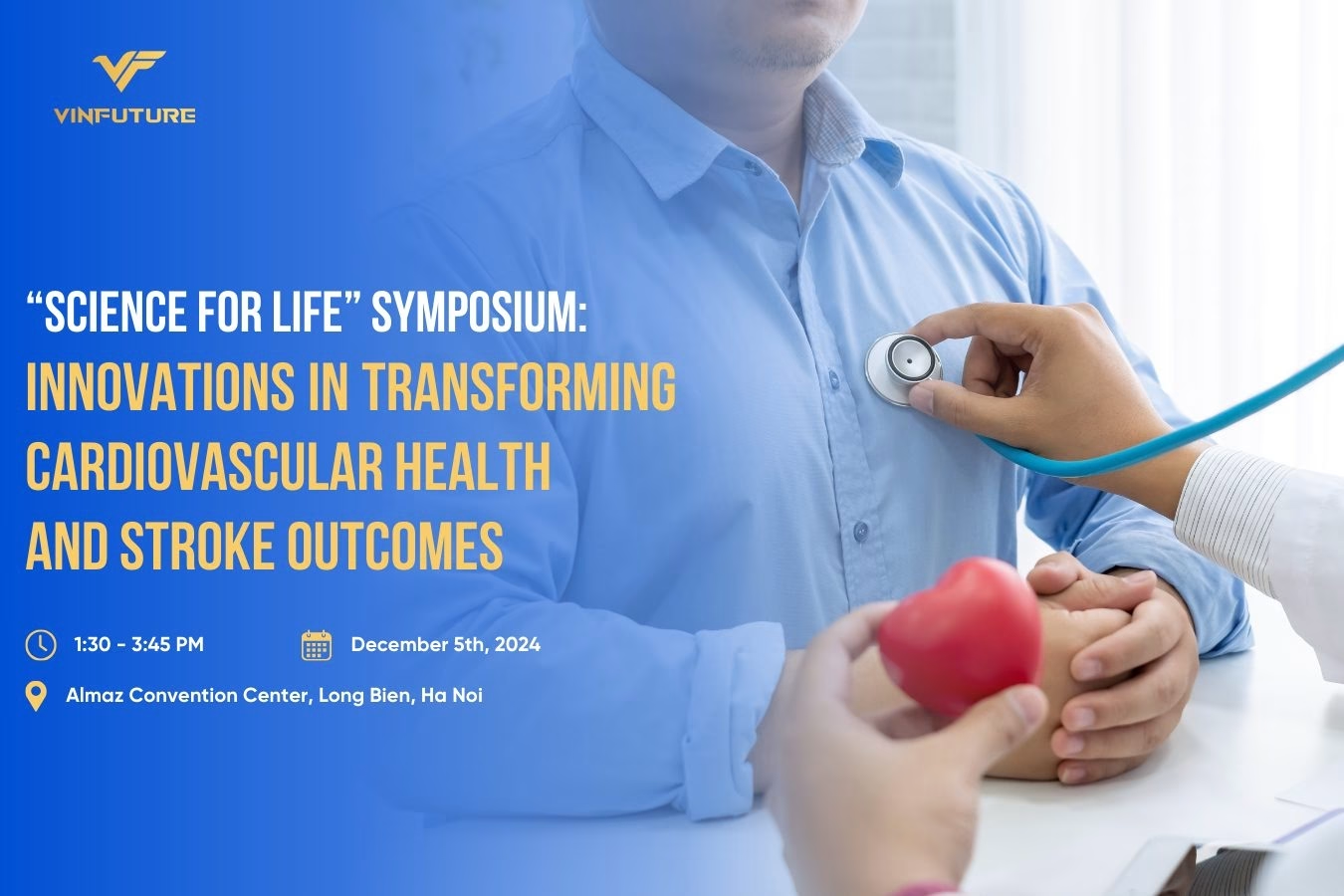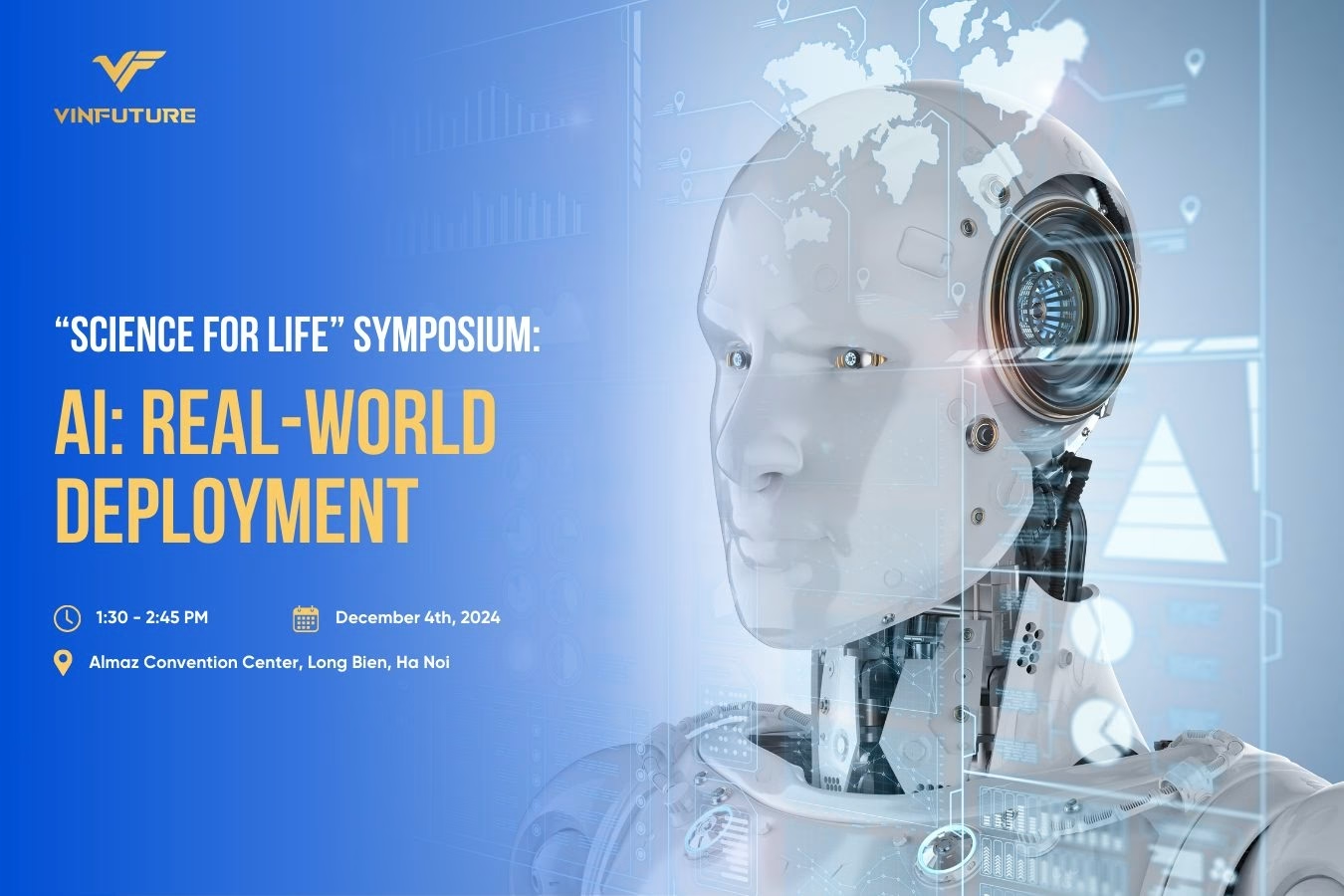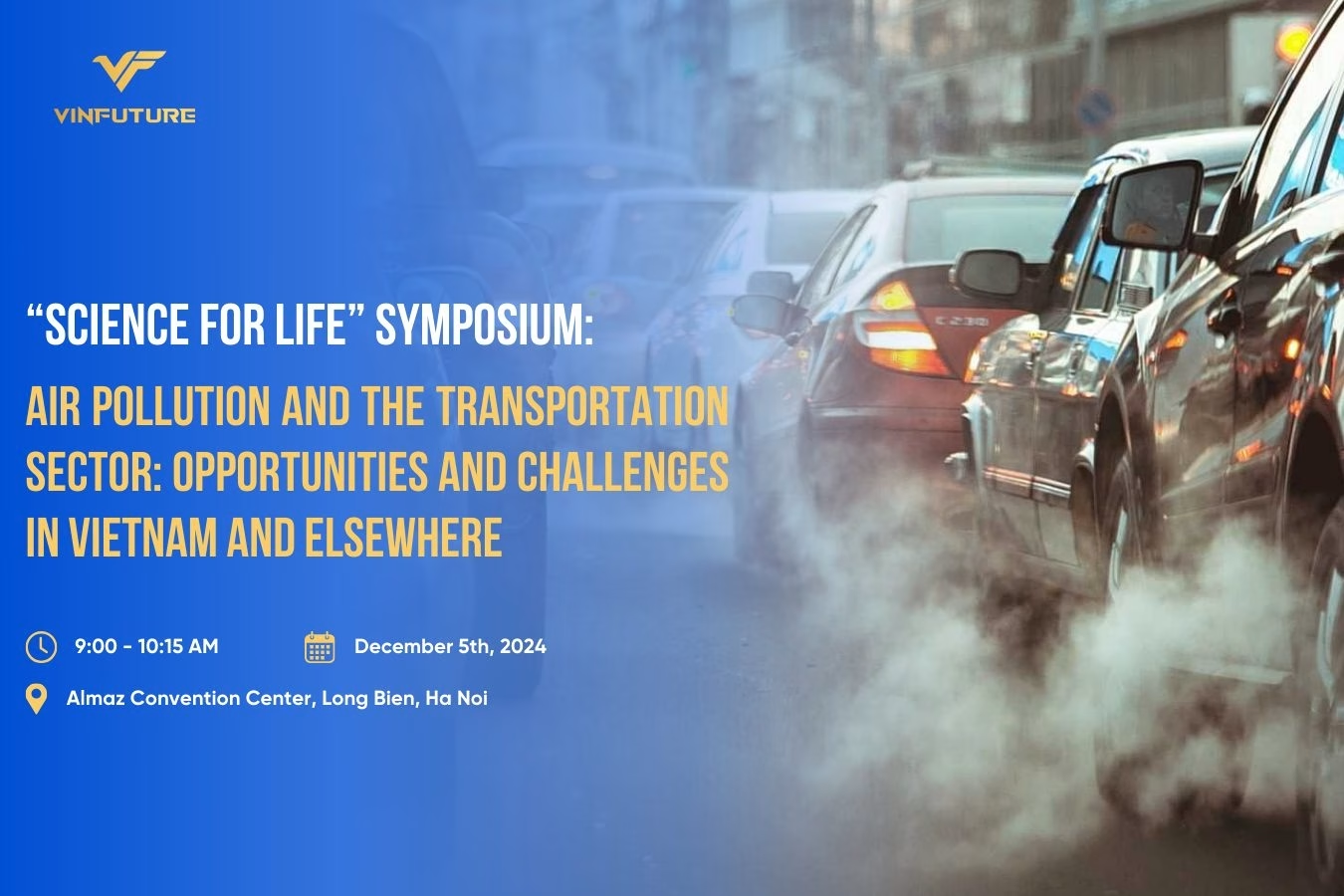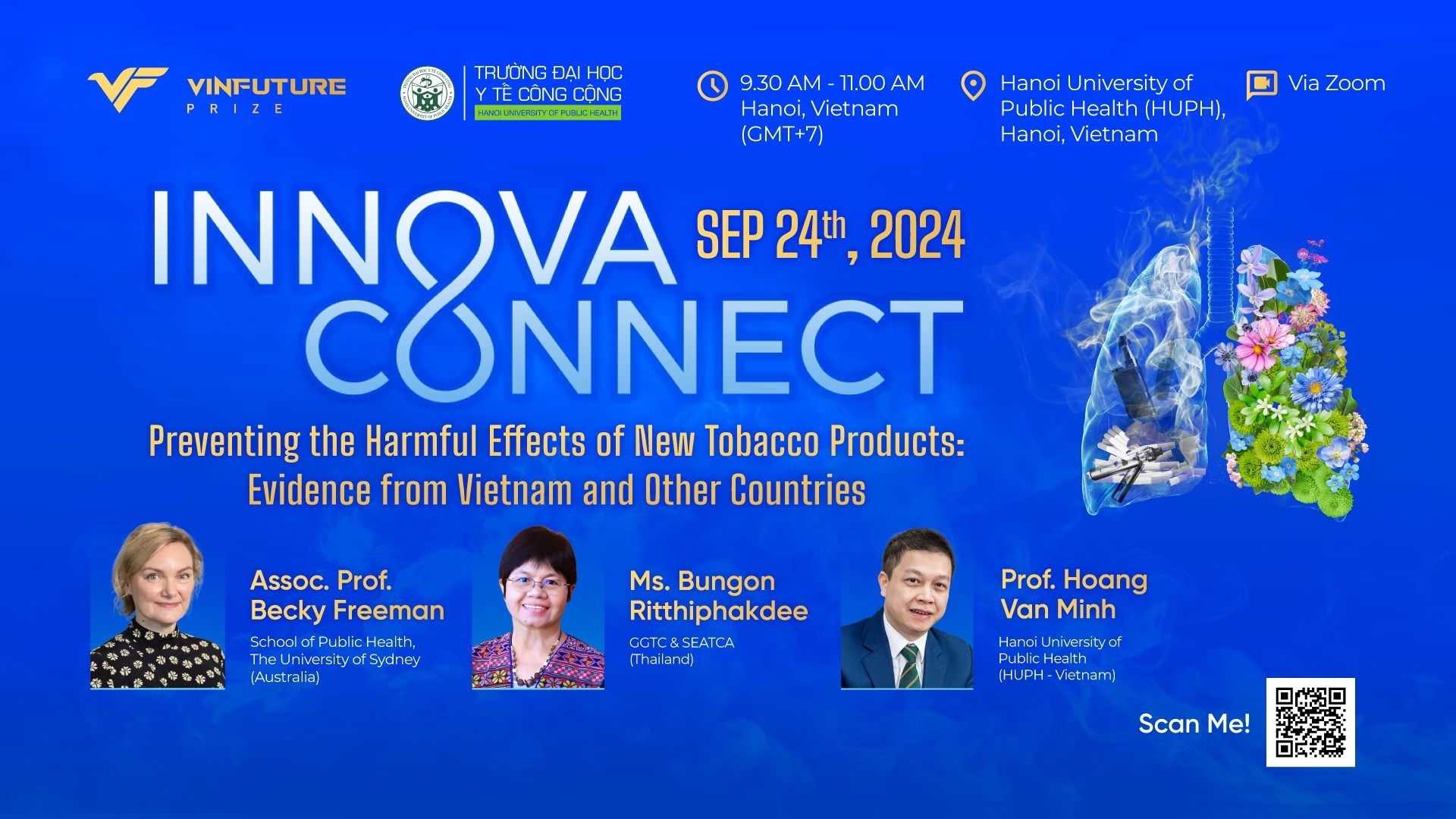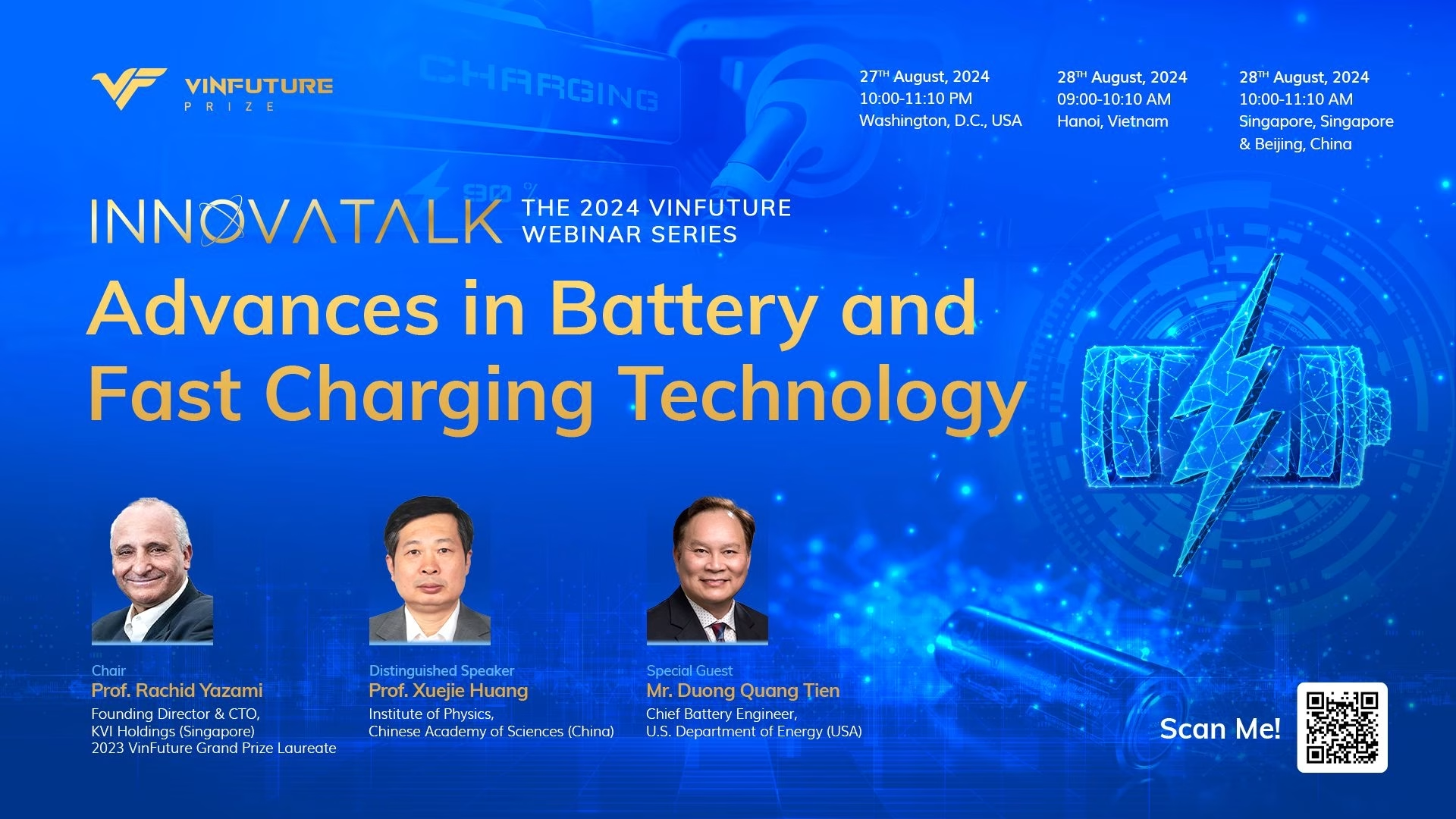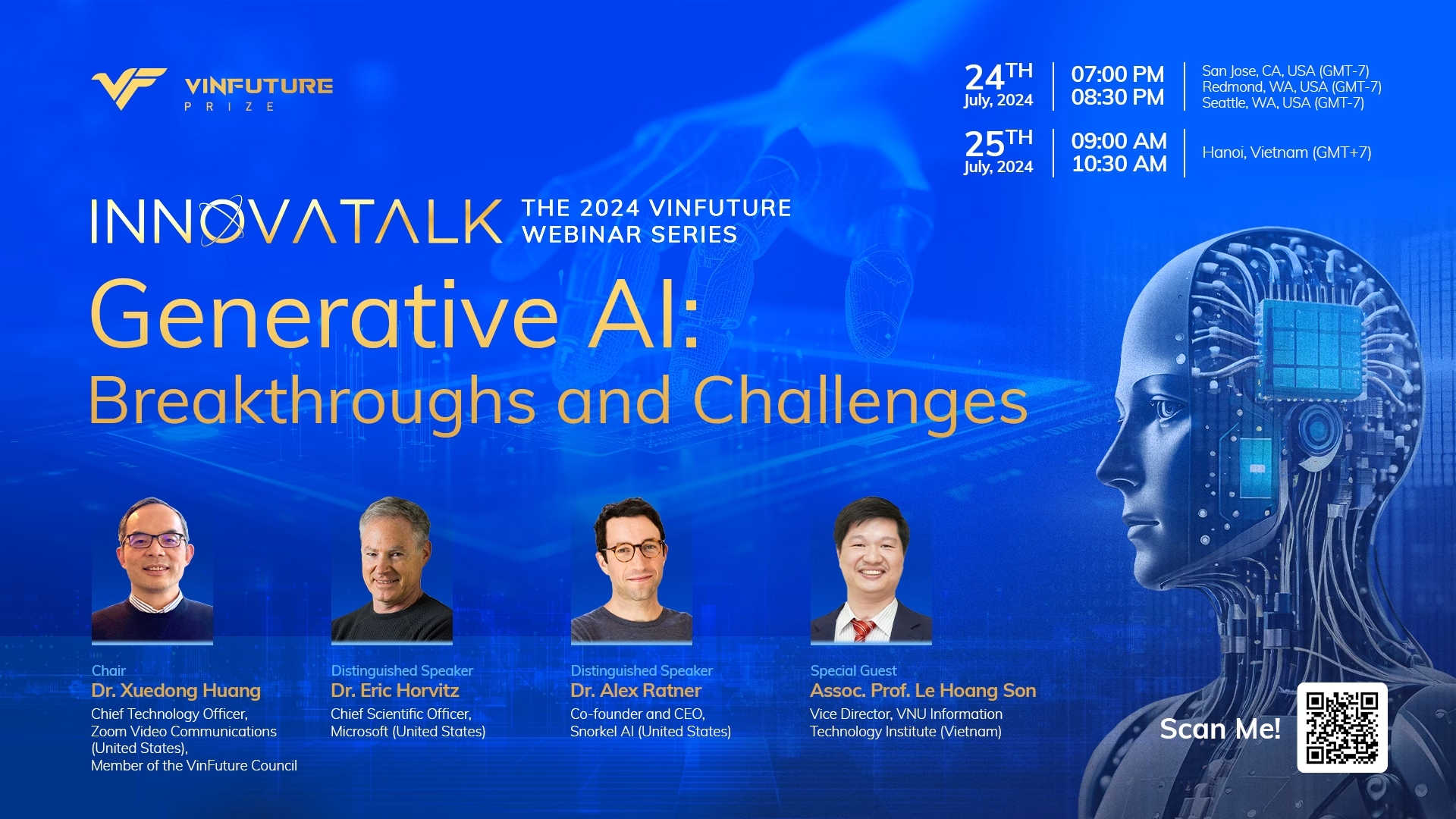With the revolutionary advancements of large language models in 2022-2023, the world has increasingly turned its attention to the development and impact of artificial intelligence (AI) on every facet of life. In this context, the symposium offers the most in-depth knowledge and assessments of this field, including the history of AI’s development, its influence on daily life, the employment landscape, academic research, as well as prevailing trends and governance strategies in the global AI sector, with a particular emphasis on Vietnam.
Five distinguished speakers who are prominent figures in their disciplines will present on the topic at this symposium. Dr. Xuedong Huang, Dr. Xuedong David Huang, a Member of the VinFuture Prize Council and Chief Technology Officer at Zoom Video Communications (USA) will preside over the symposium. Dr. Huang is a member of the US National Academy of Engineering and the American Academy of Arts and Sciences. He has over 30 years of industrial experience in leading AI and Spoken Language Processing. Previously, he was a Microsoft Technical Fellow and Chief Technology Officer of Microsoft Azure AI.
Renowned specialists who are following Dr. Huang’s lead at the symposium include:
- Dr. Padmanabhan Anandan, a Member of the VinFuture Prize Council. He is a renowned researcher in Computer Vision and Artificial Intelligence with more than 60 scientific publications and over 18,000 citations. Dr. Anandan was a founder of the Mumbai, India based Wadhwani Institute for Artificial Intelligence where he served as CEO from 2017-2021.
- Dr. Hung Bui, Founder and Chief Executive Officer of VinAI (Vietnam) – Top 20 global companies for ‘leading AI Research in 2022’ by Thundermark Capital. Before founding and managing VinAI, he assumed high-level roles at Google DeepMind, Adobe Research, and Nuance Natural Language Understanding Lab. He spent nearly a decade working at AI Center, SRI International (formerly known as Stanford Research Institute), where he led a multi-organization research team in developing probabilistic inference technologies to understand user activities in the CALO project – the largest AI project in 2003, which led to the development of Apple’s Siri.
- Prof. Christian Borgs, Director of the Bakar Institute of Digital Materials for the Planet (BIDMaP) and Member of the Berkeley Artificial Intelligence Research (BAIR) Lab at University of California, Berkeley (USA). Previously, he worked at Microsoft Research for over 22 years, where he started in 1997 as co-founder and co-director of the Theory Group.
- Prof. Jennifer Tour Chayes, a Member of the VinFuture Prize Council and Dean of the College of Computing, Data Science, and Society at University of California, Berkeley (USA). She is Professor in four departments: Electrical Engineering and Computer Sciences, Information, Mathematics, and Statistics. Professor Chayes is a member of the US National Academy of Sciences and the American Academy of Arts and Sciences, recipient of the John von Neumann Prize of the Society for Industrial and Applied Mathematics, and holder of honorary doctorates from Leiden University and Bard College.
- Prof. Leslie Gabriel Valiant, a Member of the VinFuture Prize Council and T. Jefferson Coolidge Professor of Computer Science and Applied Mathematics at Harvard University (USA). He was awarded the A.M. Turing Award in 2010 for his work in probably approximately correct (PAC) learning, the complexity of enumeration and of algebraic computation, and the theory of parallel and distributed computing.
For additional information and registration details for the presentations, interested participants are invited to reach out to: office@vinfutureprize.org

